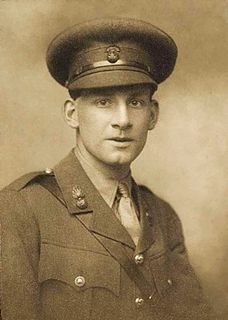A Quote by Stefan Zweig
Each of us, even the lowliest and most insignificant among us, was uprooted from his innermost existence by the almost constant volcanic upheavals visited upon our European soil and, as one of countless human beings, I can't claim any special place for myself except that, as an Austrian, a Jew, writer, humanist and pacifist, I have always been precisely in those places where the effects of the thrusts were most violent.
Quote Topics
Related Quotes
We may seem the weakest and most insignificant of all the Realms, but our strength comes in other ways. We have what no other race has: imagination. Any one of us, even the lowliest, can create worlds within ourselves; we can people them with the most extraordinary creatures, the most amazing inventions, the most incredible things. We can live in those worlds ourselves, if we choose; and in our own worlds, we can be as we want to be. Imagination is as close as we will ever be to godhead, Poison, for in imagination, we can create wonders.
I understand the most profound and simplest Truth of all: Any time any of us reaches out, any time we pour even a drop of love, compassion, simple human decency (no matter how small; how seemingly insignificant) into the sea of earthly existence - we are, each and every one of us - the being called Mercy.
I consider myself to be just one among 7 billion human beings. If I were to think of myself as different from others, or as something special, it would create a barrier between us. What makes us the same is that we all want to lead happy lives and gather friends around us. And friendship is based on trust, honesty and openness.
We human beings are not only the beneficiaries but also the stewards of other creatures. Thanks to our bodies, God has joined us so closely to the world around us that we can feel the desertification of the soil almost as a physical ailment, and the extinction of a species as a painful disfigurement. Let us not leave in our wake a swatch of destruction and death which will affect our own lives and those of future generations.
Yes, we have been visited and it appears that our visitors are prepared to help us if we allow them. It is a benign contact, however there are those who think that we also have been visited by those who do not wish us well, but I can't speak to that. I just know we have been visited, and I believe that we're being observed, and perhaps we can be helped in a crucial time if we're ready for that.
The fierce words of Jesus addressed to the Pharisees of His day stretch across the bands of time. Today they are directed not only to fallen televangelists but to each of us. We miss Jesus' point entirely when we use His words as weapons against others. They are to be taken personally by each of us. This is the form and shape of Christian Pharisaism in our time. Hypocrisy is not hte prerogative of people in high places. The most impoverished among us is capable of it. Hypocrisy is the natural expression of what is meanest in us all.
For it is humanly certain that most of us remember very little of what we have read. To open almost any book a second time is to be reminded that we had forgotten well-nigh everything that the writer told us. Parting from the narrator and his narrative, we retain only a fading impression; and he, as it were, takes the book away from us and tucks it under his arm.
Do any of us, except in our dreams, truly expect to be reunited with our hearts' deepest loves, even when they leave us only for minutes, and on the most mundane of errands? No, not at all. Each time they go from our sight we in our secret hearts count them as dead. Having been given so much, we reason, how could we expect not to be brought as low as Lucifer for the staggering presumption of our love?
At a fundamental level, as human beings, we are all the same; each one of us aspires to happiness and each one of us does not wish to suffer. This is why, whenever I have the opportunity, I try to draw people's attention to what as members of the human family we have in common and the deeply interconnected nature of our existence and welfare.
Amity Gaige has written a flawless book. It does not contain a single false note. Playful and inventive, SCHRODER movingly depicts the ways we confound our own hearts--how even with the best intentions, we fail to love those closest to us as well as we wish we could. Eric Schroder should take his place among the most charismatic and memorable characters in contemporary fiction, and Amity Gaige her place among the most talented and impressive writers working today.
Someone with whom we have a lifetime's worth of lessons to learn is someone whose presence in our lives forces us to grow...those who consciously or unconsciously challenge our fearful positions. They show us our walls. Our walls are our wounds--the places where we feel we can't love any more, can't connect any more deeply, can't forgive past a certain point. We are in each other's lives in order to help us see where we most need healing, and in order to help us heal.
There was no name for the disease; his body had gone insane, forgotten the blueprint by which human beings were built. Even now the disease still lives on in his children. Not in our bodies, but in our souls. We exist where normal human children are expected to be; we're even shaped the same. But each of us in our own way has been replaced by an imitation child, shaped out of a twisted, fetid, lipidous goiter that grew out of Father's soul.






































